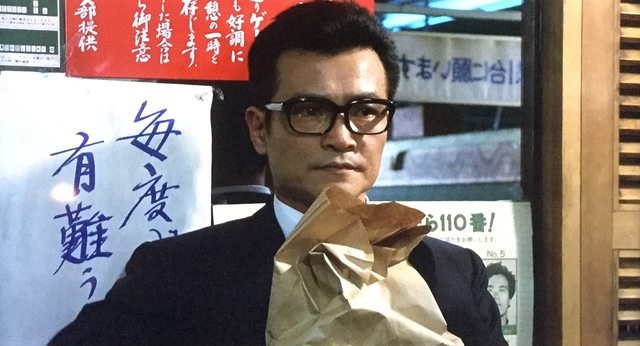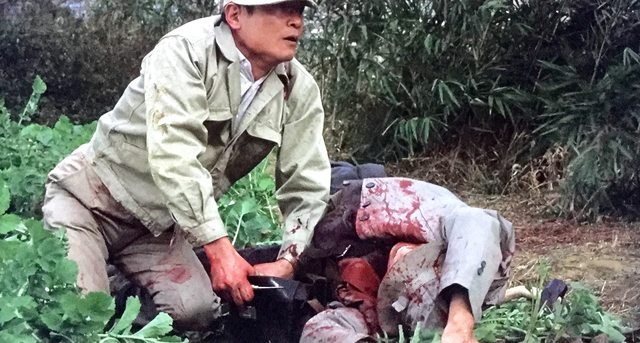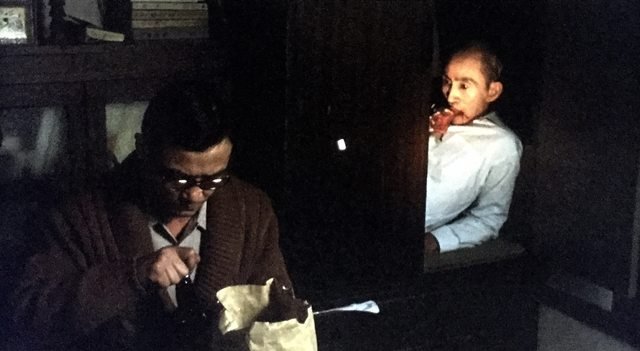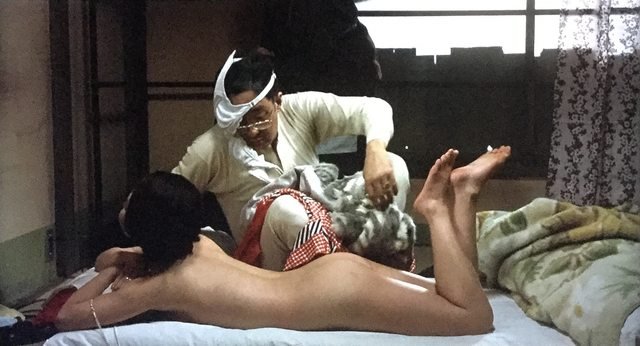VENGEANCE IS MINE [Shohei Imamura, Japan 1979] - movie review by Mandibil
After ten years of making documentaries about the outskirts of Japanese social life, Imamura returns to theatrical drama with a character "analysis" of a serial killer. His interest in documenting reality honestly, is a trademark he keeps and this proves an important angle to understanding this particular work.

A man, Iwao Enokizu (name change of real person Akira Nishiguchi ), grows up in a catholic Japanese family. He loathes his father's authoritarian style, while at the same time being embarrassed by his lack of toughness, when the Japanese navy wants to expropriate the village's fishing vessels. On the other hand, Iwao is emotionally spoiled by his forgiving mother, a combo that has disastrous consequences for his emotional development. As he grows up he becomes more and more psychopathic and after two years in prison for fraud, he discovers, that his father and his wife possibly had something cooking, while he was away. His father basically disowns him when he confronts them and from then on, he is basically lost and starts a 78 day rampage through most of Japan killing many people along the way to finance his manic living style.

The movie starts out when he is transferred to prison a few days after he is caught. During interrogation, he revisits his life in several flashbacks. The first half of the movie sets up a very meticulous and detailed profiling of Iwao. The time frame is cut forth and back and reminds one of a series of flashbacks that are bounced of each other, just as if you were trying to think back on your own history and one recollection sparks another and so on. The second part of the movie on the other hand, develops linearly from the point when he confronts his father after serving his prison sentence. It is basically the 78 day "rampage" in chronological order. This two part structure is essential and deliberately made this way by Imamura. My guess is that he tries to make the "judgement" of the serial-killer as unbiased and objective as possible. He does not try to paint him in a rosy way, but he does not try to paint him as a lone madman, disconnected from a society, that has no responsibility for Iwao's development and current situation. Or at least we are forced to take a deep look at our own understanding of how people like Iwao operate and how the people that are the "bottom" of society are the most likely ressource for him to feed on and keep him going. It is quite a distressing movie, because most of us, try to live in the fantasy, that psychopaths are only the types seen in most american movies like "Silence of The Lambs", that are completely mad. Most psychopaths never end up killing anyone, but live to feed on others emotionally and physically. Imamura forces you to think of this killer as a real person, that could sit next to you in a bus and strike a conversation with you.

The intro music and the start of the movie tends to look like a more standard, thriller b-movie, but slowly it turns into a description of Japanese society in the low end of the hierarchy. I was not gripped by the movie until an hour or so into it. That was when i realized, the director had a different and much more intelligent purpose with it, than first met my eye. It is a movie you have to be in the mood for watching and a style you have to have a liking to, to appreciate. The second part makes up well for the difficult first part, so be patient. I would have liked a bit more emotional description of Iwao alone. He is among other people in most of the shots but those of him alone are actually some of the most creepy and character defining, like the scene where we discover he has one of his victims stuck in a cabinet. This could be one of those movies you need to see twice to really appreciate. The first time, to appreciate the structure and the second time to let the societal comment sink in better. A unique movie.

Rating: 9/10